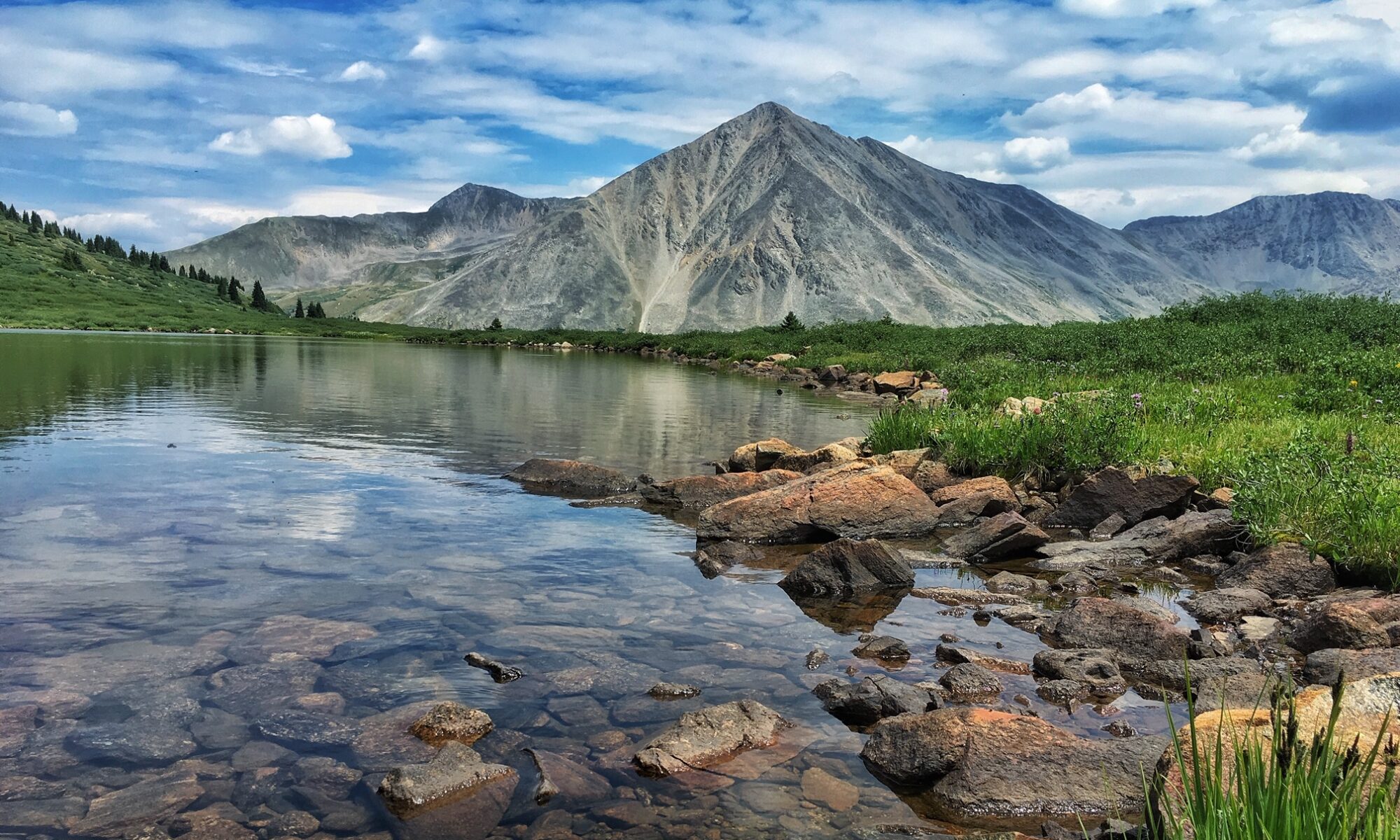In episode 21, we discussed the challenges of fly fishing lakes. When Steve was nineteen, he fulfilled a long-time dream to fish a lake where his father and grandfather had a stellar day of trout fishing years before. He expected to duplicate or exceed their success. In this piece, Steve muses about how great days on the water are not necessarily a harbinger of what will happen the next time you fish the same spot.
It was one of those magical days, and I dreamed about re-living it.
When I was seven, my dad and his dad hiked four miles from our campsite at Two Medicine Lake in Glacier National park to Upper Two Medicine Lake. U2, if I may call it that (with apologies to Bono), sits at timberline and is surrounded by cathedral mountains which shoot up to the clouds. It is simply stunning. All I remember is that when my dad and grandpa returned, they each had a creel full of brook trout. They laid them out in rows on the picnic table benches.
As I grew older, I often heard stories of that magical day. The Kodachrome slides of the experience burned it into my imagination. Here is the short version. My dad and grandpa set out with their fishing poles (neither were fly fishermen), a carton of night crawlers, and a box of spinners. The limit was around a dozen brook trout, and they had heard reports that the fishing in U2 was good. When they arrived at the lake, there was not another soul to be found. They quickly baited their hooks, made their first casts, and … nothing. Not a strike.
After a half hour of casts to the left, the right, and straight ahead, my dad decided to try a Mepps Spinner. The brookies went crazy. My dad said that he caught a fish on every cast. It only took a half hour or so for both my dad and grandpa to catch their limit. The brookies were all in the 10-12 inch range, and they were great eating. Every time I heard that story or saw pictures of it, I couldn’t wait for the day when I could make the trek to U2 and revel in that kind of fishing.
Great Unmet Expectations
I finally made it to U2 when I was nineteen. My parents and my brothers and I camped in the Two Medicine Lake Campground, and my dad and brothers and I hiked to U2 with great expectations. We had visions of brook trout leaping in our heads. By this time, my brother, Dave, and I were novice fly fishers. So we took our fly rods. My dad and my younger brothers, Mark and Kevin, brought spinning rods. The fishing started out like my dad and grandpa had experienced. Nothing. Eventually, we started catching fish, but not in large numbers. As I recall, we each caught a trout. But none of us caught more than two. However, each brook trout we caught was in the 15-17 inch range. I managed to catch a sixteen-incher off of the surface on a Royal Coachman.
I left with a strange sense of sadness and elation. I was thrilled to catch a sixteen-inch brookie on a fly rod. That’s a monster. But I was sad that I didn’t quite have the magical experience my dad and grandpa did twelve years before. Besides, it was tough going around U2. My dad said that the head-high underbrush we had to fight through along the shoreline was not that high when he and my grandpa had their exceptional day.
Over the years, I’ve learned to savor the magical moments. As much as I hope to duplicate them, it simply doesn’t work that way. Each new day on the same lake or same stretch of river you fished in the past will be different. It might be better, but it often does not live up to the expectations you brought to it. I had great expectations on Upper Two Medicine Lake, but they were flawed.
The experience changes like the river itself. The spring runoff changes the flow. Beavers leave their dams. Silt happens. Good holes disappear. Yet new ones emerge. And sometimes the trout get bigger. A lake may not yield a dozen foot-long brookies. But maybe it will give you a sixteen-incher. And that sixteen incher will become the stuff from which new dreams are made. Go ahead and dream big. But temper your great expectations with reality. Be grateful for whatever the river or lake gives you on any particular day.











